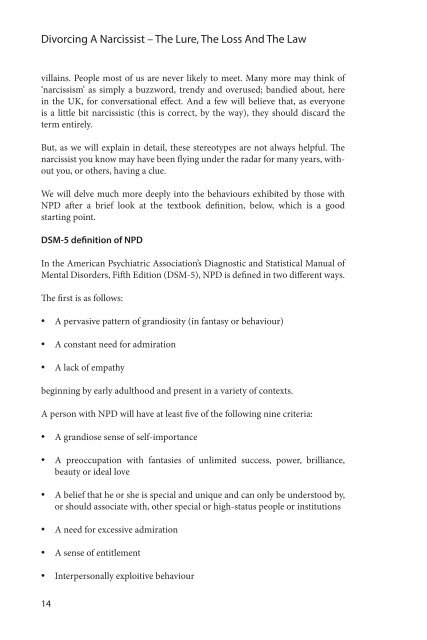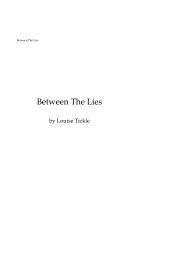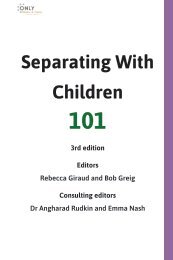Divorcing a narcissist: read the contents plus chapter 1
Separating or divorcing a narcissist or someone who has narcissistic traits can be a difficult, draining experience. This book is written for the spouse of such a personality, to support them step by step through the legal process, as well as through the difficult emotional journey that they'll be undertaking. It will help you recognise narcissistic behaviour, prime you on what challenges lie ahead and provide practical insights on how to survive the process. It will also help you work with your lawyer so you can both understand the potential pitfalls that could frustrate attempts to finalise your separation. The book is a companion volume to our book for lawyers, Narcissism and Family Law: A Practitioner's Guide
Separating or divorcing a narcissist or someone who has narcissistic traits can be a difficult, draining experience.
This book is written for the spouse of such a personality, to support them step by step through the legal process, as well as through the difficult emotional journey that they'll be undertaking. It will help you recognise narcissistic behaviour, prime you on what challenges lie ahead and provide practical insights on how to survive the process.
It will also help you work with your lawyer so you can both understand the potential pitfalls that could frustrate attempts to finalise your separation.
The book is a companion volume to our book for lawyers, Narcissism and Family Law: A Practitioner's Guide
You also want an ePaper? Increase the reach of your titles
YUMPU automatically turns print PDFs into web optimized ePapers that Google loves.
<strong>Divorcing</strong> A Narcissist – The Lure, The Loss And The Law<br />
villains. People most of us are never likely to meet. Many more may think of<br />
‘narcissism’ as simply a buzzword, trendy and overused; bandied about, here<br />
in <strong>the</strong> UK, for conversational effect. And a few will believe that, as everyone<br />
is a little bit <strong>narcissist</strong>ic (this is correct, by <strong>the</strong> way), <strong>the</strong>y should discard <strong>the</strong><br />
term entirely.<br />
But, as we will explain in detail, <strong>the</strong>se stereotypes are not always helpful. The<br />
<strong>narcissist</strong> you know may have been flying under <strong>the</strong> radar for many years, without<br />
you, or o<strong>the</strong>rs, having a clue.<br />
We will delve much more deeply into <strong>the</strong> behaviours exhibited by those with<br />
NPD after a brief look at <strong>the</strong> textbook definition, below, which is a good<br />
starting point.<br />
DSM-5 definition of NPD<br />
In <strong>the</strong> American Psychiatric Association’s Diagnostic and Statistical Manual of<br />
Mental Disorders, Fifth Edition (DSM-5), NPD is defined in two different ways.<br />
The first is as follows:<br />
• A pervasive pattern of grandiosity (in fantasy or behaviour)<br />
• A constant need for admiration<br />
• A lack of empathy<br />
beginning by early adulthood and present in a variety of contexts.<br />
A person with NPD will have at least five of <strong>the</strong> following nine criteria:<br />
• A grandiose sense of self-importance<br />
• A preoccupation with fantasies of unlimited success, power, brilliance,<br />
beauty or ideal love<br />
• A belief that he or she is special and unique and can only be understood by,<br />
or should associate with, o<strong>the</strong>r special or high-status people or institutions<br />
• A need for excessive admiration<br />
• A sense of entitlement<br />
• Interpersonally exploitive behaviour<br />
14













